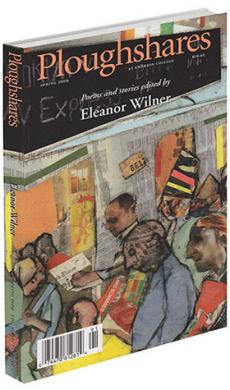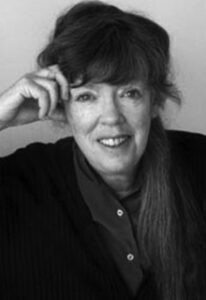rev. of The Earth in the Attic by Fady Joudah
The Earth in the Attic, poems by Fady Joudah (Yale): Wallace Stevens wrote of the extraordinary pressure of news, how "the consciousness of the world" fixes on events that make "the ordinary movement of life seem to be the movement of people in the intervals of a storm. " Fady Joudah’s debut collection explores both storms and intervals: the heavy weather and contemplative spaces of dislocation and exile. With engaging complexity, his poems filter contemporary news—its time and locales—through more universal lenses of lyric and parable (often with a second-person call-to-attention) and compellingly parallel human behavior and its host landscapes. In "Atlas," the powerful opening salvo, he begins:
The end of the road is a beautiful mirage:
White jeeps with mottos, white
For now
The opening line, somewhere between direct observation and figuration, segues into tangible objects in a figurative swirl: animate and non-sentient subjects engage, along with nouns and verbs in gerund forms. Beyond the object-figure collage, the shortest line in the poem, "For now," while suggesting an ephemeral nonchalance, also announces the stern and elegiac necessity to heed the tale about to unfold. That narrative is as much pastoral—hawks, hoopoes, and acacias—as it is political: hand-grenades, checkpoints, and jets. At poem’s end, a fractured world is somewhat synthesized by our presence: when a nameless driver says, "Then you are one of us," both speaker and reader are implicated and brought into belonging. We begin to feel the burdens of individuals in the intervals of a storm.
The implication factor in these poems often surprises, especially given the fabular feel of the landscape and its fleetingly encountered characters. Namelessness inhabits these poems in realms human and otherwise. Flowers are lent names that are taken back, flaps of peeling bark mark "trees whose names I do not know, and where / Would I find a botany guide here." Descriptions, sans naming, produce a startling simultaneity of presence and distance. In "Pulse," one of the book’s best poems at balancing riveting portraiture with the measured reserve of tales, we learn that
The choices involving names—the dying child named, the surviving mother not—and the second-person implication—"You should have seen"—feel colloquial yet grave. Hope regularly arrives and departs, as later in the poem, when we ‘re told "He came, the humanitarian man, / He came and loved, then he went." The nameless are too much with us, and they’re fleeting.
These poems engender a simmering sympathy for those who bear personal and political burdens in the world, yet they maintain an emotionally taut diplomacy that eschews bathos and easy, partisan allegiances. Thus, a poem like "Resistance," ostensibly about a couple who silently disagree on when to harvest grapes, possesses a similar political gravitas as "Scarecrow," a poem that highlights Joudah’s gifts for blending pastoral and political.
If true pastorals are identified by location—the quiet, serene pasture—Joudah’s lyrics are modern-day anti-pastorals, far more Darwinian than Edenic. Gaps between the natural world and the politics that color human behavior are negligible: the garden-world verges on nightmare, although humor, meticulous attention, and the poetic act of pushing back on reality help balance these sobering lyrics. The collection ‘s title appears in "Along Came a Spider": after a heavy downpour, "spiders bloom anywhere there’s a web-hold / And the earth is like an attic." It’s another reminder of a present-tense space that bears the weight of the past (attic as storage space) while suggesting some hopes for sustenance. In similar fashion, "Love Poem" privileges the imperative "say" as a conditional call-to-arms for imagination. Its penultimate line refers to "dreams," but one can easily substitute "poems" and recognize the keen, diligent heart of this collection, its dedicated resistance: "Say anything that doesn’t wake me / From my morning sleep, / My dreams take too long / And I must finish them. "
Joudah’s biography—a child of refugees, he’s a Palestinian-American physician who worked in Zambia and Darfur for Doctors Without Borders—amplifies these lyrics, but they sing for themselves. Their beautifully rendered testimony walks a socio-political tightrope and emerges, shaped and challenged by contexts, on the universal side of the falls, where exiles might find place and the dispossessed, a foothold. —Michael Morse
Michael Morse is a 2008-2009 fellow at the Fine Arts Work Center in Provincetown, and has published poems in A Public Space, Agni, The Canary, Field, Ploughshares, and Tin House. He teaches English at the Ethical Culture Fieldston School in New York.

